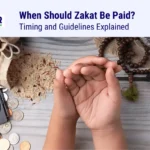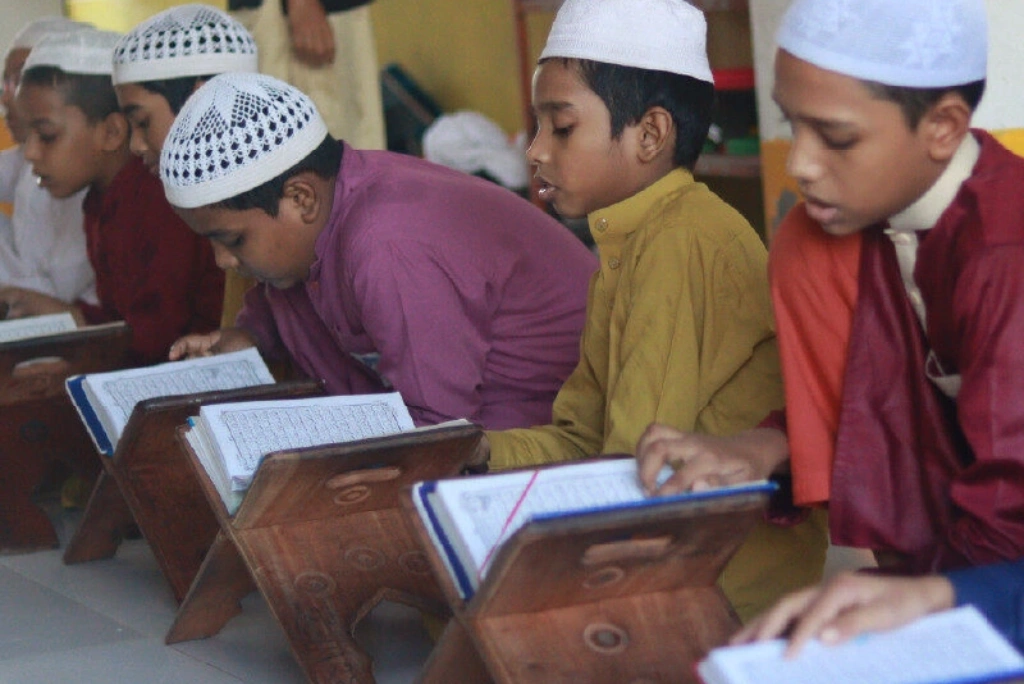Pay Eid Zakat: A Complete Guide to Zakat al-Fitr
This fund is the compulsory charity equivalent to pay Eid Zakat (Zakat al-Fitr) that every Muslim is required to pay before attending the Eid al-Fitr prayer. It’s a form of zakat that specifically helps you cleanse your fast and ensures that the poor are able to partake in the celebratory festivities. Zakat al-Fitr is distinct from regular zakat in that it is a fixed amount, not wealth-based.
This guide will clarify when and how to pay Zakat al-Fitr, how to calculate it, and why it is so important. You’ll find out who should pay, how much to donate, and how to make sure it gets to the right people in time.
What is Zakat al-Fitr?
Zakat al-Fitr, they speculated, is the Eid charity given at the end of Ramadan prior to Eid al-Fitr. Zakat al-Fitr is a small fixed amount, whereas regular zakat is based on how much wealth you have. Its main aim is to purify your fast and ensure the impoverished can celebrate Eid, too.
Zakat al-Fitr is incurred upon every Muslim, rich or poor, because it is not wealth-dependent. It is generally paid in staple food (such as dates or wheat) or its cash equivalent.
Why is Paying Eid Zakat Important?
There are many benefits of paying Eid zakat:
- Cleanses Your Fast: Zakat al-Fitr removes the deficiencies of your fast and purifies your deeds.
- Accounts for the Poor: It enables the downtrodden to participate in the Eid festivities with food and aid.
- Promotes Unity: Assisting others strengthens the society and brings about solidarity.
- Performs Religious Obligation: Zakat al-Fitr is compulsory for all Muslims, ensuring that you perform your obligation and receive Allah’s blessings.
- Eid is not about beautiful clothes, and you must pay for the Eid zakat so that the rich and poor can enjoy it equally.
Who Should Pay Eid Zakat?
Eid zakat is mandatory for every Muslim who has the means to pay. Zakat al-Fitr must be paid by the head of the household on behalf of every person they care for, including both children and elderly family members.
- Adults: All able Muslim adults.
- Children: The head of household pays for children and dependents.
- Elderly or Disabled: The head of the family must pay for the elderly or disabled family members who cannot pay.
Regardless of whether or not you are wealthy, if you can afford it, you are obligated to pay Eid zakat.
When Should Eid Zakat Be Paid?
Before the Eid al-Fitr prayer, give the zakat. This gesture is to help the poor prepare for the celebrations. The most meritorious time for discharge is the final few days of Ramadan, allowing sufficient time for the poor to derive benefit.
- When: Eid zakat ideally should be paid in advance—preferably a few days before Eid—so that it reaches the poor in time.
- Payment Timing: Technically, paying after the Eid prayer is still valid, but it is best to pay on time so that you fulfill the entire obligation properly.

How Much Should You Pay for Eid Zakat?
Eid zakat is a certain amount of money (usually in the form of staple food). The figure is roughly equivalent to:
- 1.5 to 2 kg of staple food per person (dates, wheat, or barley)
- Alternatively, the cash equivalent of that food quantity may vary by region.
To calculate the exact amount that you owe for your area, you can just ask your local mosque or zakat organization. Be sure to pay for everyone in your household, including children and dependents.
How to Calculate Eid Zakat
This is how to work out Zakat for Eid:
- Ask about the price of basic food: Find the price of the basic staple food (wheat, barley, dates, or raisins) in your area.
- Check The Amount: Typically, the total amount is 1.5-2 kg of food per person; check how much this will cost you in your country.
- Multiply by Number of People: If you are paying for others, children, and dependents, multiply the cost by the number of people you are paying for.
Alternatively, many mosques or organizations will have a fixed amount in cash, which can simplify the process.
Who Receives Zakat al-Fitr?
Eid zakat is meant for the poor and needy. It ensures that no one is left behind when celebrating Eid. Zakat al-Fitr can be given to:
- The Poor: People who do not have enough to meet their basic needs.
- The Needy: Those who may not be wholly destitute but are still struggling.
- Widows and Orphans: People who are without family support.
- The Elderly: Older individuals who cannot work and need help.
- Those in Debt: People who are in debt and cannot pay it off.
Zakat al-Fitr should be given to those who genuinely need it to celebrate Eid.
The Benefits of Paying Eid Zakat
The benefits of paying Eid zakat are as follows:
- Spiritual Cleansing: It cleans you and multiplies your reward.
- Supports the Needy: It ensures poor people have enough to enjoy Eid with dignity.
- Brings Togetherness—It builds mutual bonds among Muslims as they encourage charity and assist one another.
- By paying Zakat on Eid, you do your duty. Paying Eid zakat is one of your duties; when you do it, it brings you closer to Allah.
Common Mistakes to Avoid When Paying Eid Zakat
- Eid zakat: The mistake you should avoid.
- Pay too late: Pay before the Eid prayer. A late payment will not meet this condition.
- Not Paying For ALL Members Of The Household: Most people forget about kids or other members of households.
- Wrong Amount: Verify that you are paying the correct amount at your local food prices or glory prices.
Therefore, make sure to calculate and give Eid zakat on time and in the proper amount.
How to Pay Eid Zakat (Zakat al-Fitr)
Eid zakat can be given in multiple manners:
- Mosques: Many local mosques also accept Zakat al-Fitr and distribute it to the needy in the area.
- International charity organizations: You may pay through local or international charity organizations through which the Eid Zakat is distributed.
- Online Payment: There are many platforms that allow you to donate Zakat al-Fitr online and make sure it gets into the hands of the poor.
Be sure to go through a trusted charity or organization, so your zakat can be distributed appropriately.
Final Thoughts on Paying Eid Zakat
Giving Eid al-Fitr zakat (Zakat al-Fitr) is an integral part of Eid preparations. It purifies your heart, assists those in need, and creates a fair environment for everyone to rejoice. Keeping the above-mentioned steps in mind, you will never forget to pay your zakat on Eid. This charity brings Eid to all corners happy for all.
When should I pay the Eid Zakat?
Zakat al-Fitr, which all Muslims are required to pay, should be paid before the prayer of Eid al-Fitr.
How much Eid Zakat do I have to pay?
The quantity in question is traditionally around 1.5 to 2 kg of staple food or cash equivalent.
Is it permissible to pay Zakat for Eid after the Eid prayer?
We recommend paying it before the Eid prayer to ensure its validity.
Who should receive Eid zakat?
It is given to the poor, needy, orphans, widows, and those in debt.
Can I pay for Eid Zakat online?
However, you can also send Eid zakat via reliable websites.
Do I have to pay for children as well?
In so far as parents cover their children and other dependents, they are providing support.
Can I pay Eid zakat late—what if I forget?
Pay it as soon as possible. It must reach those in need ahead of the Eid celebrations, even if only so as not to delay the countdown.




 Secure
donation
Secure
donation